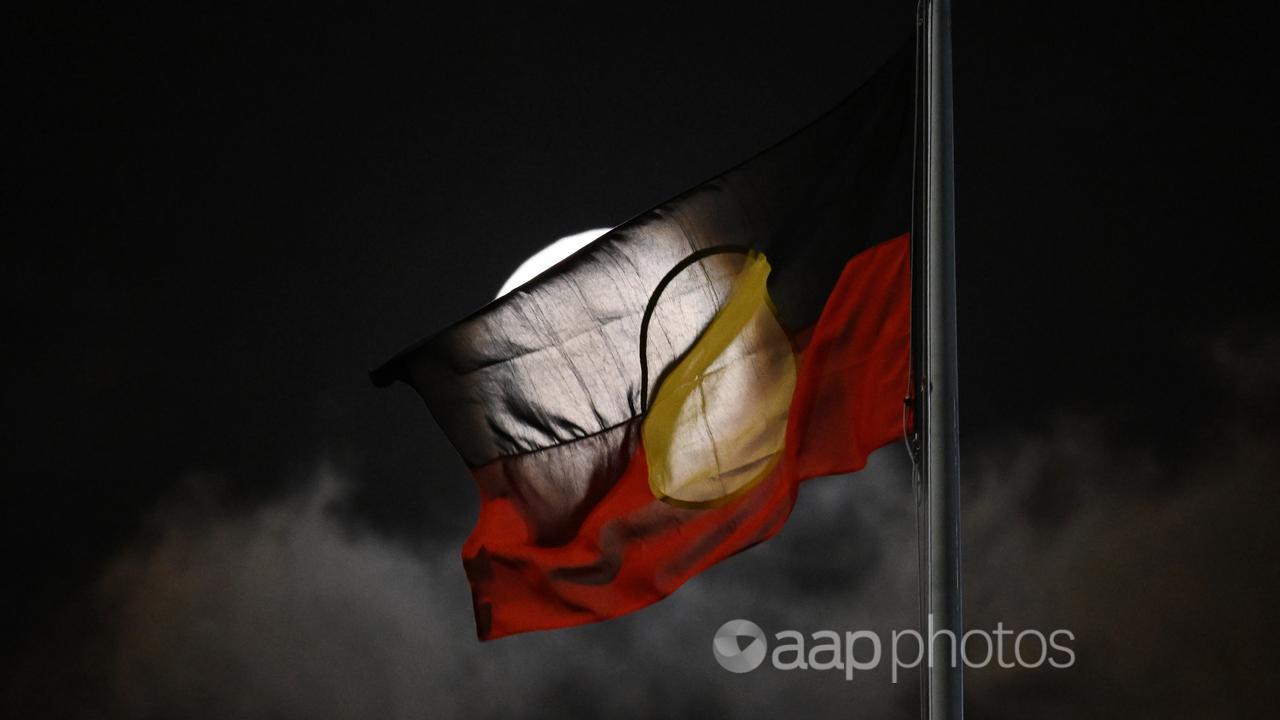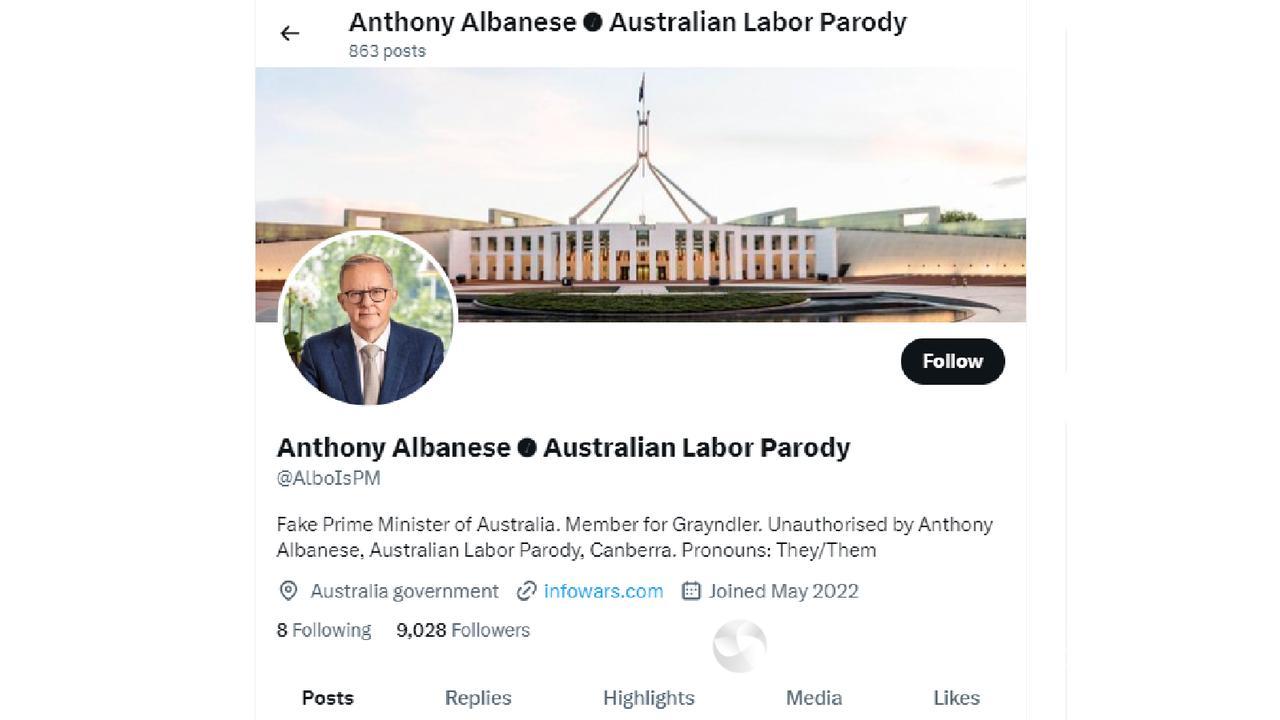Social media posts claim the 1967 referendum in Australia granted citizenship to Aboriginal and Torres Strait Islander people.
This is false. Historical records show, and experts confirmed to AAP FactCheck, the question of citizenship was not part of the 1967 referendum.
Indigenous people were granted citizenship in 1948. However, experts said this decision did not afford Aboriginal and Torres Strait Islander people with all the rights usually equated with citizenship.
The 1967 myth persists more than half a century on. Ahead of October’s referendum on the Indigenous voice, it continues to spread on social media, examples here, here and here.
Even the Australian High Commission in the United Kingdom made the claim in a Facebook post (screenshot here).
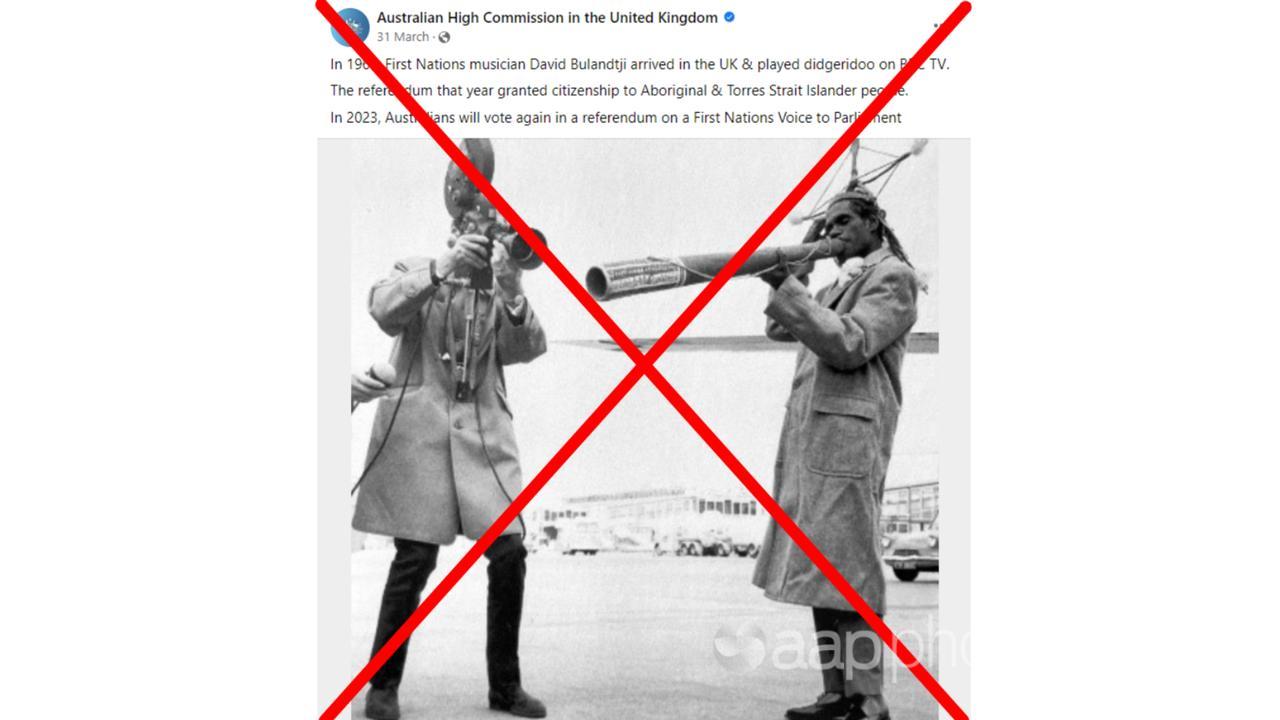
The post shares a photo of an Indigenous musician playing the didgeridoo for BBC TV in 1967.
“The referendum that year granted citizenship to Aboriginal & Torres Strait Islander people,” the post states
In practical terms, the 1967 referendum result altered the Australian Constitution to give the federal government the power to make laws for Indigenous people, a power previously held by states alone.
It also allowed Indigenous people to be fully counted as part of the general population in the census.
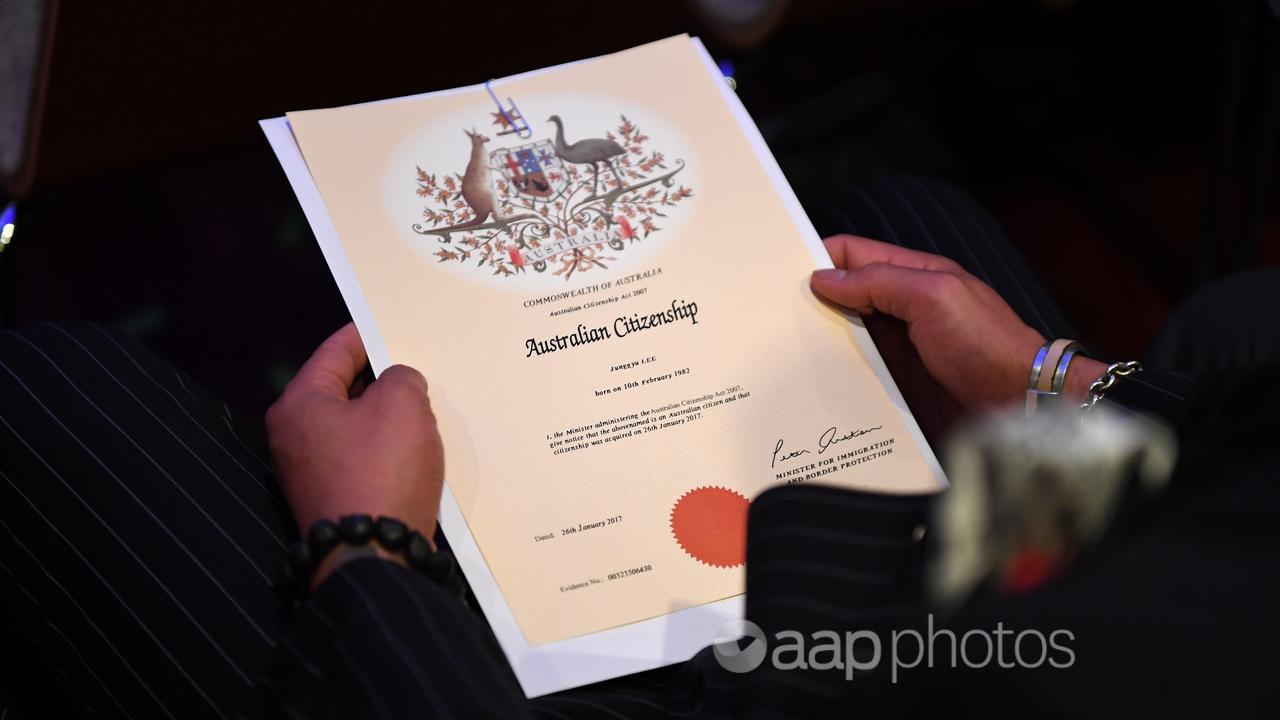
But misconceptions about the referendum continue to be repeated.
A 2007 parliamentary paper, titled The 1967 Referendum – history and myths, lists a number of these misbeliefs including that it gave Indigenous Australians wage equality, the right to vote and access to social security.
The paper also discusses the citizenship myth (page 16), stating Indigenous activists “campaigned for a plethora of ‘citizen rights’ in the decade before the referendum, but never intended to give the impression there was one single right which would make indigenous people citizens let alone that the 1967 referendum would grant it”.
It points out that “energetic ‘talking-up’ in the course of the campaign of the implications of a ‘yes’ vote, contributed to the myth that ‘citizenship’ itself was at stake”.
Professor Russell McGregor, an Australian history expert at James Cook University, said the citizenship myth arose because the “yes” campaign’s messaging went unchallenged in the absence of a “no” campaign.
“While the ‘yes’ campaigners didn’t say the referendum would give Aboriginal people the right to vote, they did talk a lot about citizenship,” Prof McGregor said.
“But citizenship is something beyond its legal meaning. There’s a sort of emotional and affective dimension to citizenship as well, with notions of full participation, full acceptance and stuff like that.”

Emeritus Professor John Maynard, an Indigenous history expert at the University of Newcastle, told AAP FactCheck that there is “unquestionably confusion over the 1967 referendum”.
“The official alteration after the 1967 referendum was that Aboriginal and Torres Strait Islander peoples would be counted as part of the population and the Commonwealth would be able to make laws for them,” Prof Maynard said.
“Aboriginal and Torres Strait Islander peoples were granted Australian citizenship along with all other Australians in 1948.
“Before this, all Australians were British subjects. Citizenship did not give voting rights to Aboriginal and Torres Strait Islander peoples though.”
Indigenous people were granted voting rights between 1962 and 1965.
John Chesterman, co-author of Citizens Without Rights: Aborigines and Australian Citizenship, said becoming citizens did not confer Indigenous people with full rights.
“In terms of when Indigenous Australians became Australian citizens, the point my co-author and I made in our book Citizens Without Rights is that Indigenous people were not specifically excluded from Australian citizenship when that legal status was created in 1948,” Dr Chesterman said.
“But nor did Australian citizenship afford the rights that are normally equated with citizenship (such as the right to vote).
“As to why Indigenous Australians were barred in some jurisdictions from enjoying rights such as the right to vote, this can only be explained by entrenched racism.”
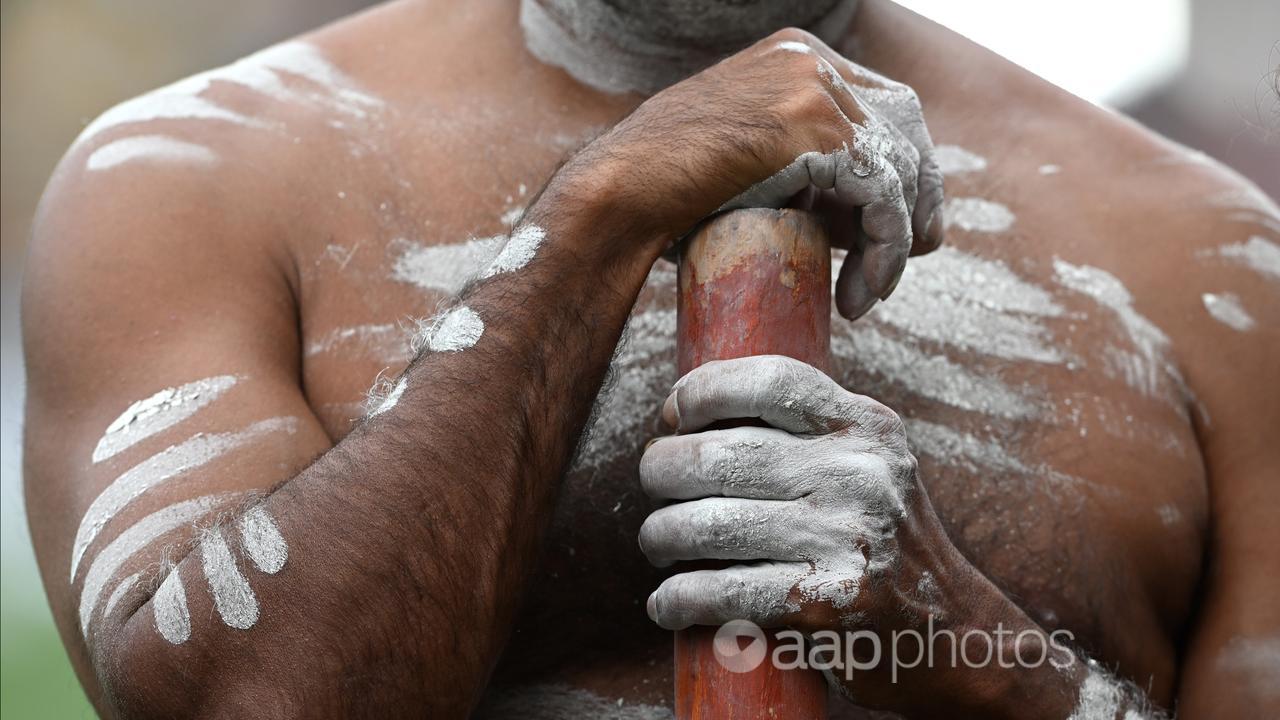
Professor Peter Read, of the Australian National University’s Centre for Indigenous History, said that citizenship comes in all sorts of forms.
“These rights include, for example, living wherever one chooses and not being forced to live on a reserve, or being allowed into a hotel,” he said via email. “So if you were made a ‘citizen’ (known derisively as getting a Dog Tag), in NSW in 1968, – you were not allowed to visit an Aboriginal reserve!! Not exactly citizenship.”
The National Archives of Australia outlines what the 1967 referendum did address in this explainer.
The referendum’s first question, which failed, was an attempt to alter the balance of numbers in the Senate and the House of Representatives, referred to as the “nexus question“.
The second was a question to decide whether two references to Aboriginal people in the Constitution should be removed from Sections 51 (xxvi) and 127.
The first section was about the people the Commonwealth could make laws for, with the clause “other than the aboriginal people in any State” removed, while the second was about who could be counted in a census, with the clause “Aboriginal natives should not be counted” removed.
AAP FactCheck has debunked other claims relating to the 1967 referendum – see here, here and here.
The Verdict
The claim the 1967 referendum granted citizenship to Aboriginal and Torres Strait Islander people is false.
Citizenship was not part of the questions put to the Australian people in 1967. The referendum concerned the Commonwealth’s right to legislate for Indigenous people, rather than the states, and fully included Indigenous people in the census count.
Indigenous people were granted citizenship in 1948. However, experts told AAP FactCheck the decision did not afford Aboriginal and Torres Strait Islander people with all the rights usually equated with citizenship.
False – The claim is inaccurate.
AAP FactCheck is an accredited member of the International Fact-Checking Network. To keep up with our latest fact checks, follow us on Facebook, Twitter and Instagram.
All information, text and images included on the AAP Websites is for personal use only and may not be re-written, copied, re-sold or re-distributed, framed, linked, shared onto social media or otherwise used whether for compensation of any kind or not, unless you have the prior written permission of AAP. For more information, please refer to our standard terms and conditions.

